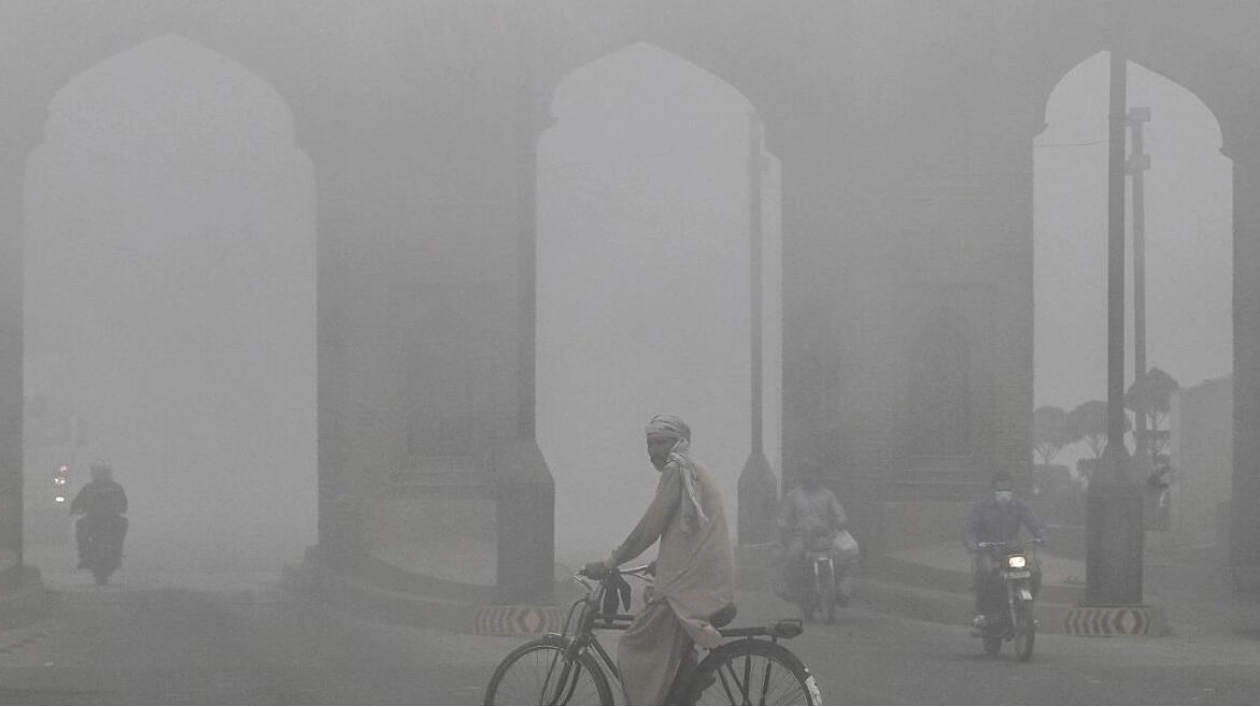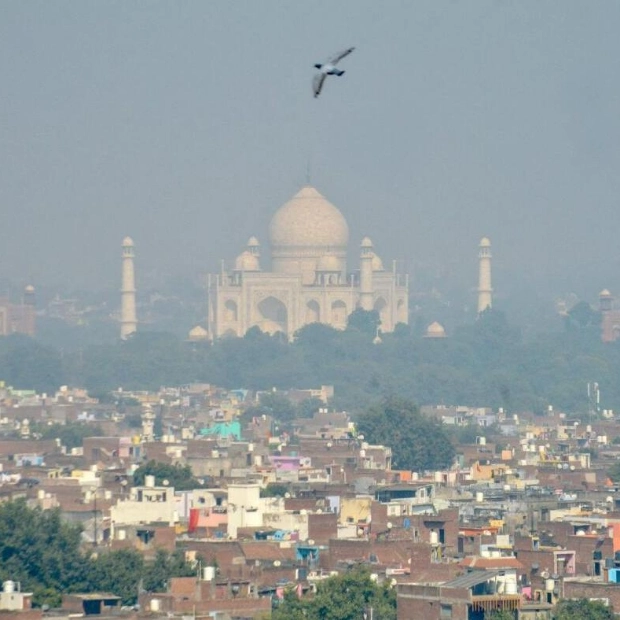A cyclist navigates through a street shrouded in dense smog in Lahore on Sunday. AFP
Pakistan's eastern Punjab province has imposed a ban on public access to parks, zoos, playgrounds, and other public spaces as of Friday to safeguard the public from hazardous air quality. The province is also contemplating the closure of universities following the earlier shutdown of schools. Lahore, the capital of Punjab, has seen a severe decline in air quality, earning it the dubious distinction of being the world's most polluted city according to Swiss air purification equipment maker IQAir.
"We are closely observing the situation. There is a likelihood of closing universities and colleges on Monday to minimize vehicle emissions," stated Jahangir Anwar, Secretary of the Environment Protection Department Punjab. The regional government's directive on Friday enforced a "complete ban on public entry in all parks ... zoos, playgrounds, historical places, monuments, museums, and joy/play lands" until November 17, encompassing areas like Lahore.
In addition to closing schools, the province has implemented other measures such as recommending that half of the employees work from home and prohibiting rickshaws in certain zones. South Asia routinely grapples with severe pollution due to trapped dust, emissions, and stubble burning—the practice of setting fire to fields post-harvest.
Punjab has linked this year's heightened pollution levels to toxic air emanating from neighboring India, where air quality has also plummeted to dangerous levels. Punjab has established a "smog war room," employing satellite, drone technology, and AI to monitor and combat pollution. However, Anwar notes that there is insufficient equipment to effectively monitor the province, with only four air quality monitoring machines for the entire city of Lahore, "whereas we should have 50".
Anwar mentioned that the department has imported and deployed five mobile monitoring units and plans to deploy eight more by year-end. Ahmad Rafay Alam, an environmental lawyer and member of the Pakistan Climate Change Council, emphasized the necessity for comprehensive data and policy reforms.
"Currently, we lack those monitors, and we don’t have the robust data required to make informed decisions," Alam said. He cautioned that unless fuel quality, renewable electricity, and industrial emissions are addressed, the issue will persist and worsen.
Source link: https://www.khaleejtimes.com






